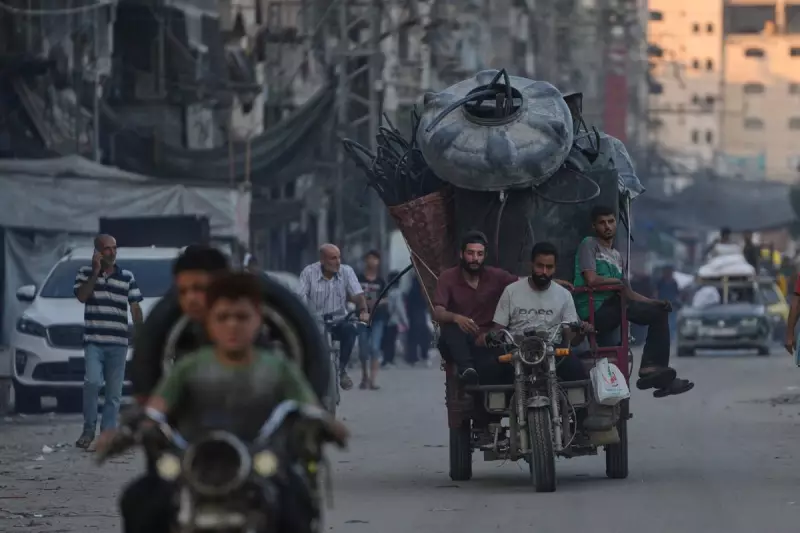
Israeli military forces have pushed deeper into Gaza's southern city of Rafah, seizing control of the vital border crossing with Egypt and launching strikes across the eastern districts. This major escalation comes amid fragile ceasefire negotiations and growing international concern for the civilian population sheltering in the area.
The Israel Defence Forces (IDF) confirmed their troops had entered Rafah, taking "operational control" of the crucial Philadelphi Corridor along the Egypt-Gaza frontier. Military officials stated this action was based on "intelligence indicating the area was being used for terrorist purposes."
Ceasefire Proposal Accepted Amid Ongoing Operations
In a dramatic development, Hamas announced it had accepted a ceasefire proposal mediated by Egyptian and Qatari officials. The militant group's leader, Ismail Haniyeh, communicated this decision to both mediators, potentially signalling a breakthrough in the seven-month conflict.
However, the Israeli government responded cautiously. Prime Minister Benjamin Netanyahu's office stated that the war cabinet would "review the proposal" but simultaneously decided to continue the Rafah operation. The IDF emphasised its commitment to both military pressure and diplomatic efforts to secure the release of hostages held in Gaza.
International Reaction and Humanitarian Concerns
The offensive has triggered widespread international alarm. United Nations humanitarian chief Martin Griffiths warned that a full-scale military operation in Rafah could lead to "a slaughter" and potentially collapse the aid operation supporting over a million displaced Palestinians.
US State Department spokesman Matthew Miller expressed serious concerns, noting that Israel had not presented a credible plan for protecting civilians in Rafah. The European Union's foreign policy chief, Josep Borrell, echoed these apprehensions, stating that Israel's evacuation orders did not guarantee safety for displaced civilians.
Evacuation Orders and Civilian Precautions
Earlier this week, the IDF instructed approximately 100,000 residents to evacuate from eastern Rafah, directing them toward an expanded humanitarian zone at Al-Mawasi. The military has encouraged civilians to move to designated safe areas, though aid organisations question the adequacy of these preparations.
Despite the evacuation orders, many residents remain trapped in Rafah, facing impossible choices between unknown dangers elsewhere and the risks of staying. The UN reports that most hospitals in the area are no longer functioning, compounding the humanitarian crisis.
The Strategic Importance of Rafah
Rafah has become the focal point of Israel's campaign to eliminate Hamas's military capabilities and secure the release of hostages taken during the October 7th attacks. Israeli officials believe several Hamas battalions remain in the city and that key leaders may be hiding there.
The seizure of the Rafah crossing significantly alters the dynamics of the conflict, giving Israel control over the main entry point for humanitarian aid into Gaza. This development has raised concerns about the already strained flow of essential supplies to the besieged territory.
As the situation develops, the international community watches anxiously, hoping for a diplomatic breakthrough that could end the violence while addressing the complex security concerns on both sides.





